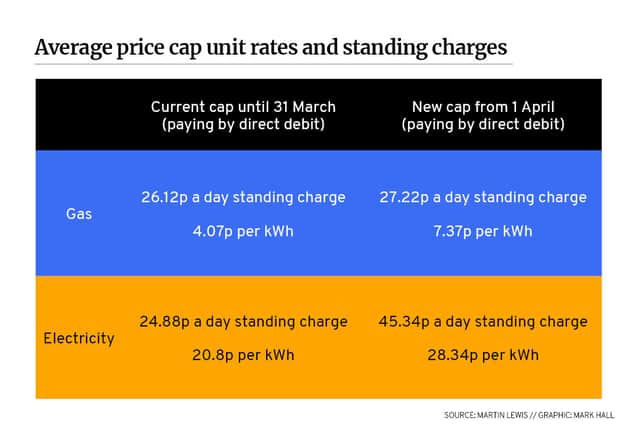Energy bills: single 65p roll of Asda tin foil could help to instantly slash the cost of heating bills
This article contains affiliate links. We may earn a small commission on items purchased through this article, but that does not affect our editorial judgement.
and live on Freeview channel 276
Energy bills are set to go up in price from April following the price cap increasing and wholesale gas prices rising.
The price cap will rise by 54% from 1 April to £1,971, adding huge costs to monthly bills for millions of families.
Advertisement
Hide AdAdvertisement
Hide AdBut it is possible to cut your costs with a simple trick that will help to better insulate your home.
One method is to use a special radiator foil which Asda is selling for just 65p.
How will Asda’s tin foil help?
Asda sells Smart Price tin foil for just 65p for a 20m by 29cm roll.
As it costs less than £1 a roll, it could be worth trying this simple technique to see if it helps to keep your house stay warmer.
Advertisement
Hide AdAdvertisement
Hide AdThe idea is that the tin foil acts as a reflective foil behind your radiator to bounce heat back into the room.
You can also buy sheets of reflective sticky-back aluminium foil from Screwfix for £3.9, measuring 600mm by 1m.
There isn’t enough research to say how effective using plain tin foil is, or how much it can save you, and some researchers are reluctant to say whether it gives the same benefit as proper reflective foil.


What is the energy crisis?
Regulator Ofgem has confirmed it is increasing its price cap by £693 from £1,277 to £1,971 from 1 April 1 - marking a rise of 54%.
Advertisement
Hide AdAdvertisement
Hide AdPrepayment customers will be worse hit, with a jump of £708 from £1,309 to £2,017.
Rising energy bills mean all cheap fixed rate deals have been pulled from the market, meaning the majority of families cannot get a better deal than the price cap rate.
Some companies have been contacting customers with special fixed deals that are at the same rate as the price cap, but these are being snapped up and pulled within hours.
What are some other money-saving tips?
Lowering your thermostat dial by just one degree could reduce bills by around £8 to £85 per year.
Advertisement
Hide AdAdvertisement
Hide AdAdjusting central heating timers to switch off at night and during the day if the house is empty will also minimise fuel consumption.
For rooms in the house that are not used much, try turning down the radiator or turning it off completely.
Lowering the temperature of your washing machine is an eco-friendly way to save money, and drying clothes on a rack instead of a tumble dryer,.
You should also turn appliances off at the power if they are on standby, which could save around £55 a year.
Advertisement
Hide AdAdvertisement
Hide AdAdd insulation to your roof if you can, as installing loft insulation could save up to £215 per year in energy bills depending on your home.
Try buying a draught-excluding cushion and put it in front of your door to tackle draughty windows, doors, chimneys, floorboards, skirting boards and loft hatches. You can also use draught excluder strips or expanding foam fillers for this - and could save you around £25 a year.
It is also worth swapping old-style bulbs with energy-saving LED bulbs as this could save around £7 per year in running costs, and eventually cut around £180 from your energy bills.
A message from the editor:
Thank you for reading. NationalWorld is a new national news brand, produced by a team of journalists, editors, video producers and designers who live and work across the UK. Find out more about who’s who in the team, and our editorial values. We want to start a community among our readers, so please follow us on Facebook, Twitter and Instagram, and keep the conversation going. You can also sign up to our newsletters and get a curated selection of our best reads to your inbox every day.
Comment Guidelines
National World encourages reader discussion on our stories. User feedback, insights and back-and-forth exchanges add a rich layer of context to reporting. Please review our Community Guidelines before commenting.
